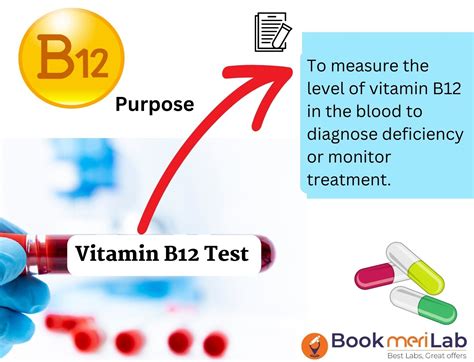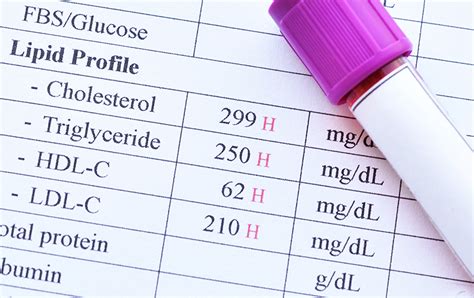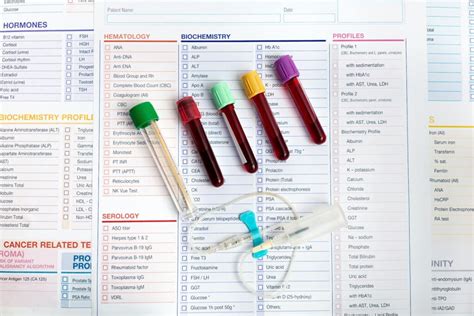Intro
Discover the importance of Vitamin B12 tests, including symptoms, deficiency risks, and diagnostic methods, to ensure accurate results and proper treatment for related health conditions like anemia and fatigue.
Vitamin B12 is an essential nutrient that plays a crucial role in the production of red blood cells, nerve function, and DNA synthesis. A deficiency in vitamin B12 can lead to a range of health problems, including anemia, fatigue, and neurological disorders. Testing for vitamin B12 levels is a straightforward process that can help diagnose a deficiency and guide treatment. In this article, we will explore the different ways to test for vitamin B12 levels, the benefits and limitations of each method, and what the results can tell us about our health.
The importance of vitamin B12 testing cannot be overstated. Vitamin B12 deficiency is a common condition that can affect anyone, regardless of age or background. It is estimated that up to 15% of the general population has a vitamin B12 deficiency, with certain groups, such as older adults and vegetarians, being at higher risk. Early detection and treatment of vitamin B12 deficiency can help prevent long-term health consequences, such as nerve damage and increased risk of cardiovascular disease. With the various testing methods available, individuals can take a proactive approach to monitoring their vitamin B12 levels and maintaining optimal health.
Vitamin B12 testing is a simple and non-invasive process that can be performed in a variety of settings, including hospitals, clinics, and even at home. The most common methods of testing involve measuring the levels of vitamin B12 in the blood or urine. These tests can provide valuable insights into an individual's nutritional status and help identify potential health problems. In addition to testing, it is also important to understand the causes and symptoms of vitamin B12 deficiency, as well as the treatment options available. By taking a comprehensive approach to vitamin B12 health, individuals can reduce their risk of deficiency and maintain optimal well-being.
Vitamin B12 Test Methods

There are several methods to test for vitamin B12 levels, each with its own advantages and limitations. The most common methods include:
- Blood tests: These are the most common method of testing for vitamin B12 levels. Blood tests measure the amount of vitamin B12 in the blood and can help diagnose a deficiency.
- Urine tests: These tests measure the amount of methylmalonic acid (MMA) in the urine. Elevated levels of MMA can indicate a vitamin B12 deficiency.
- Homocysteine tests: These tests measure the amount of homocysteine in the blood. Elevated levels of homocysteine can indicate a vitamin B12 deficiency.
- Schilling test: This test measures the amount of vitamin B12 absorbed by the body. It involves taking a small amount of radioactive vitamin B12 orally and measuring the amount excreted in the urine.
- Holotranscobalamin (holo-TC) test: This test measures the amount of holotranscobalamin, a protein that transports vitamin B12 in the blood.
Benefits and Limitations of Each Method

Each testing method has its own benefits and limitations. For example, blood tests are widely available and relatively inexpensive, but may not always accurately reflect vitamin B12 levels. Urine tests, on the other hand, can provide a more accurate measure of vitamin B12 levels, but may require a 24-hour urine collection, which can be inconvenient. The Schilling test is considered the gold standard for measuring vitamin B12 absorption, but it involves radiation and may not be suitable for everyone. The holo-TC test is a relatively new method that measures the amount of holotranscobalamin in the blood, which can provide a more accurate measure of vitamin B12 levels.
Understanding Vitamin B12 Test Results

Interpreting vitamin B12 test results can be complex and requires a thorough understanding of the different testing methods and their limitations. In general, a vitamin B12 level below 200 pg/mL is considered deficient, while a level between 200-400 pg/mL is considered borderline. A level above 400 pg/mL is considered normal. However, it's essential to note that reference ranges can vary depending on the laboratory and testing method used.
What Do the Results Mean?

The results of a vitamin B12 test can provide valuable insights into an individual's nutritional status and health. A deficiency in vitamin B12 can indicate a range of health problems, including anemia, fatigue, and neurological disorders. On the other hand, a normal vitamin B12 level can provide reassurance that an individual's nutritional status is adequate. In some cases, a vitamin B12 test may be used to monitor the effectiveness of treatment for a deficiency or to diagnose a condition such as pernicious anemia.
Treatment Options for Vitamin B12 Deficiency

Treatment for vitamin B12 deficiency typically involves supplements or injections of vitamin B12. The goal of treatment is to restore normal vitamin B12 levels and alleviate symptoms. In some cases, treatment may also involve addressing underlying causes of the deficiency, such as a dietary deficiency or a medical condition.
Prevention and Maintenance

Preventing vitamin B12 deficiency requires a combination of a balanced diet, regular testing, and awareness of the signs and symptoms of a deficiency. Foods rich in vitamin B12, such as meat, fish, and dairy products, can help maintain adequate levels. Vegetarians and vegans may need to consider supplements or fortified foods to ensure they are getting enough vitamin B12. Regular testing can help identify a deficiency early on, and treatment can be initiated to prevent long-term health consequences.
Conclusion and Next Steps

In conclusion, vitamin B12 testing is a crucial step in maintaining optimal health. By understanding the different testing methods, interpreting test results, and taking proactive steps to prevent deficiency, individuals can reduce their risk of vitamin B12-related health problems. If you are concerned about your vitamin B12 levels or are experiencing symptoms of a deficiency, consult with a healthcare professional to discuss your options and develop a personalized plan.
We encourage readers to share their experiences and ask questions about vitamin B12 testing and deficiency. Please comment below with your thoughts and concerns, and we will do our best to provide helpful and informative responses.
What is the normal range for vitamin B12 levels?
+A normal vitamin B12 level is typically considered to be above 400 pg/mL. However, reference ranges can vary depending on the laboratory and testing method used.
What are the symptoms of vitamin B12 deficiency?
+Symptoms of vitamin B12 deficiency can include fatigue, weakness, pale skin, shortness of breath, and neurological problems such as numbness and tingling in the hands and feet.
How is vitamin B12 deficiency treated?
+Treatment for vitamin B12 deficiency typically involves supplements or injections of vitamin B12. The goal of treatment is to restore normal vitamin B12 levels and alleviate symptoms.
